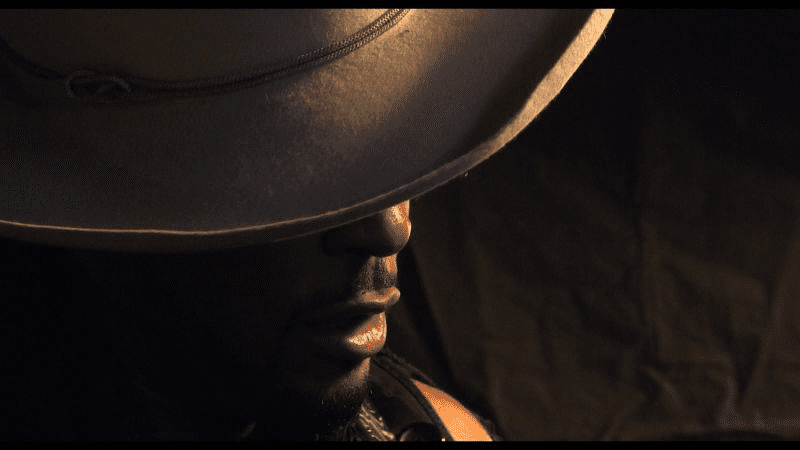After the release of his 2000 sophomore album, Voodoo, and the subsequent tour, then 26-year-old R&B artist, D’Angelo, was poised to be one of the biggest names in music. As his tour manager Alan Leeds recalls thinking, “It was clear to me that he was at the forefront of wherever black music [was] gonna go.” Instead, the artist disappeared from the industry until the release of 2014’s Black Messiah. The new documentary Devil’s Pie—D’Angelo, which was filmed during that album’s The Second Coming Tour, attempts to explain that absence.
Directed by Carine Bijlsma, the film begins by proving D’Angelo’s (born Michael Eugene Archer) genius. “He sounds like a whole band on piano,” says tour keyboardist, Cleo “Pookie” Sample. The Roots co-frontman, Questlove, who calls his time touring with “D” for Voodoo, “some of the best times in [his] musical life,” explains D’Angelo’s genius as teaching him to be, “disrespectful about rhythm and melody structure.” That praise is supported by deep dives into precisely why D’Angelo’s music is so revolutionary (his habit of back-phrasing, his virtuosity on piano, etc.), but it’s also bolstered by D’Angelo himself.
As we watch D’Angelo warm up or casually sing while doing other things, it seems clear that the musical talent is constantly spilling out of him—every off-hand note feels like the beginning of something revolutionary. In those moments, D’Angelo seems infinitely confident and self-possessed, so it’s surprising to see how timid and anxious he is when it’s just him and Bijlsma filming in a room. As he explains it, D’Angelo is the persona he puts on while performing, Michael is the real person: “On that stage, you get so high and then you leave the stage and it’s just you.” As it turns out, that high and the responsibility of the “power” his music gave him over people is what led him to fall apart near the end of the Voodoo tour.
Given that, it’s disappointing that that’s about all the explanation we get from Archer himself on the reasons for his disappearance. He makes references to a drug problem that spiraled out of control and a deep depression resulting from his grandmother’s death, but nothing more concrete. “I ain’t even ready to talk about it publicly,” he says and though Bijlsma supplements that explanation with explanations from Questlove that, “part of his soul was slowly being consumed,” on the previous tour, it leaves the film as a whole feeling incomplete, even too surface-y.
Still, while Devil’s Pie is thin on the actual details, what makes Bijlsma’s film so effective is that she makes the audience feel the weight of Archer’s genius. As we see him shaking with anxiety before going onstage–nearly on the verge of tears–or starting to show up late to shows, the question becomes whether he will be able to finish the tour at all. As Questlove puts it, artists on the verge of breaking down, “use time as a way to control things,” and Archer clearly begins to crave that control. So, when the members of the tour are shown frantically searching for someone before a show, we assume the worst. Instead, Bijlsma pulls a clever trick in the film’s final act and the performance that follows is unexpectedly cathartic.
As we watch Archer nearly cry his way through arguably his most famous song, “Untitled,” we know much he struggled with the way the song and its video made him a sex symbol an we feel the truth when he he tells the audience, ”it’s not the easiest thing to sing.” Watching him use the music that has brought so much angst, it is both humbling and cathartic to see him use it to express sadness, peace, even relief through that same music and it’s difficult to watch the film’s final moments and not be moved.
Though fans who go to Devil’s Pie—D’Angelo looking for deeper insight into why the artist left music for over a decade will be left no more enlightened than when the film began, Bijlsma’s film achieves the even harder task of reminding viewers why they missed him in the first place. Watching the emotional toll recording and touring takes on Archer, it’s easy to understand both why he couldn’t handle the pressure and the almost religious fervor his music inspires. He may be a musical genius, but just because the music comes easy doesn’t mean the fame and power do too. It’s unclear by film’s end if we’ll ever really get to hear more from D’Angelo, but at least it also reminds us to be grateful for what he‘s given us.


